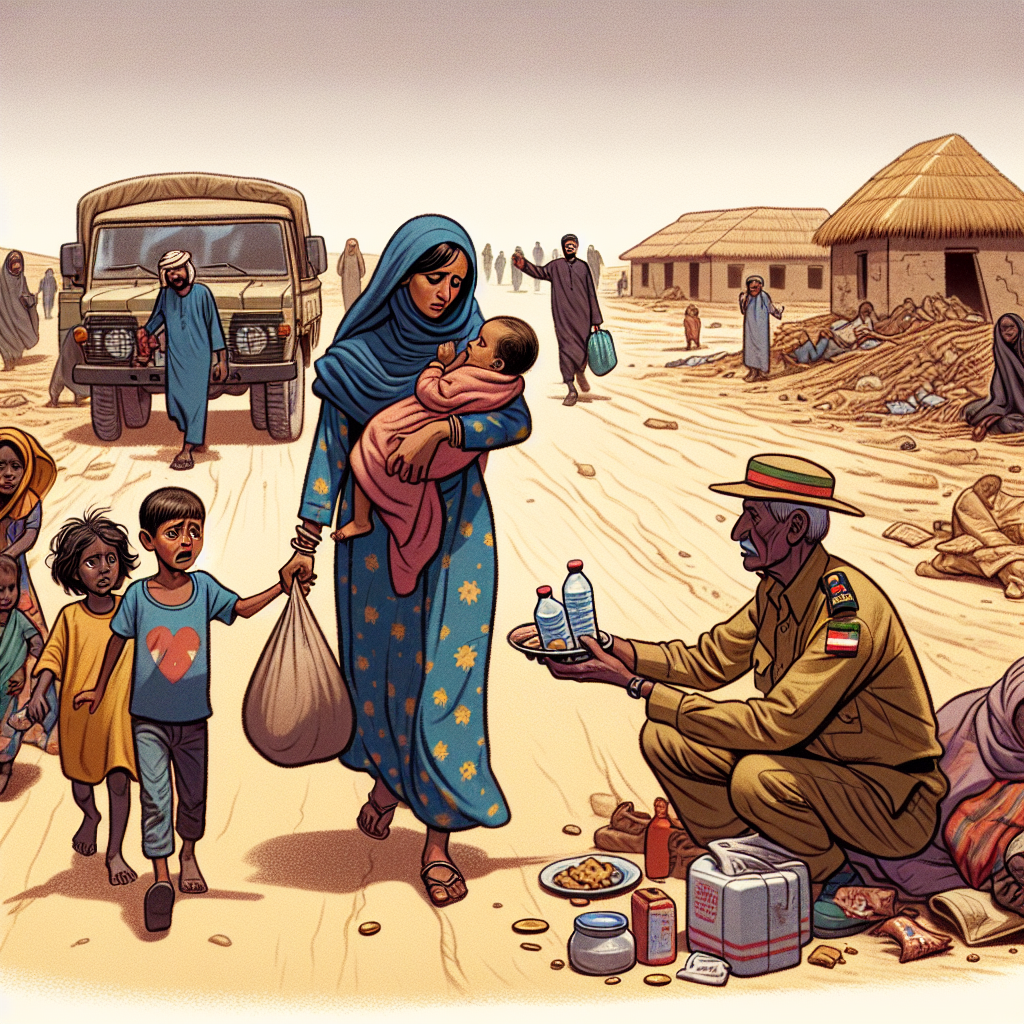The United States has welcomed the resumption of humanitarian aid deliveries through the Adré border crossing from Chad into Sudan, along with diplomatic efforts to reopen emergency aid routes via the Dabbah Road from Port Sudan to famine-stricken areas of Darfur. The severe lack of humanitarian access over the past six months has intensified the already dire famine and acute hunger across Sudan, particularly within the Zamzam camp.
This breakthrough follows a series of talks held in Switzerland this month by the Aligned for Advancing Lifesaving and Peace in Sudan (ALPS) Group, which includes the United States, Switzerland, the Kingdom of Saudi Arabia, Egypt, the UAE, the African Union, and the UN. The ALPS Group engaged in intensive negotiations with both the Rapid Support Forces (RSF) and the Sudanese Armed Forces, successfully securing the first guarantees for safe and unhindered access through the Adré crossing and the Dabbah Road. This could potentially deliver lifesaving aid to nearly one million Sudanese facing starvation. Ongoing negotiations aim to ensure humanitarian access from Port Sudan to southern regions of the country, including al-Jazira State and Sennar State.
If successful, these three routes would significantly enhance humanitarian access to areas of Sudan that have been difficult to reach, providing critical supplies of food, medicine, and treatment. With over 25 million people facing acute hunger and more than 10 million displaced from their homes, the need for increased humanitarian aid is urgent. The international community must utilize every available resource to boost the flow of relief into and within Sudan.
The United States also acknowledged commitments made by the RSF during the Switzerland talks, including pledges to refrain from attacking humanitarian aid deliveries, streamline procedures for emergency access to food and medicine, and enforce a code of conduct for its fighters. This code includes directives to avoid violence against women, exploitation at checkpoints, and the destruction of crops, in compliance with the Jeddah Declaration and international humanitarian law. The U.S. emphasized that these commitments must be reflected in the actions of RSF troops on the ground, who have been implicated in ethnic cleansing and crimes against humanity since the conflict began.
The U.S. reiterated that there is no military solution to the crisis in Sudan and affirmed its commitment to working with international partners to engage both parties in direct talks to end the violence.











